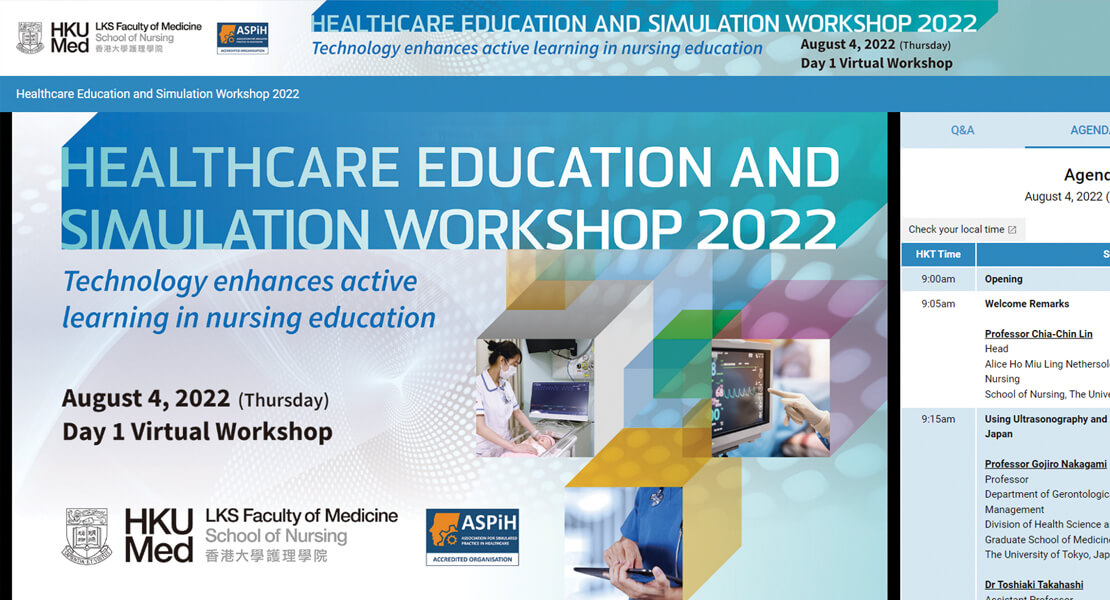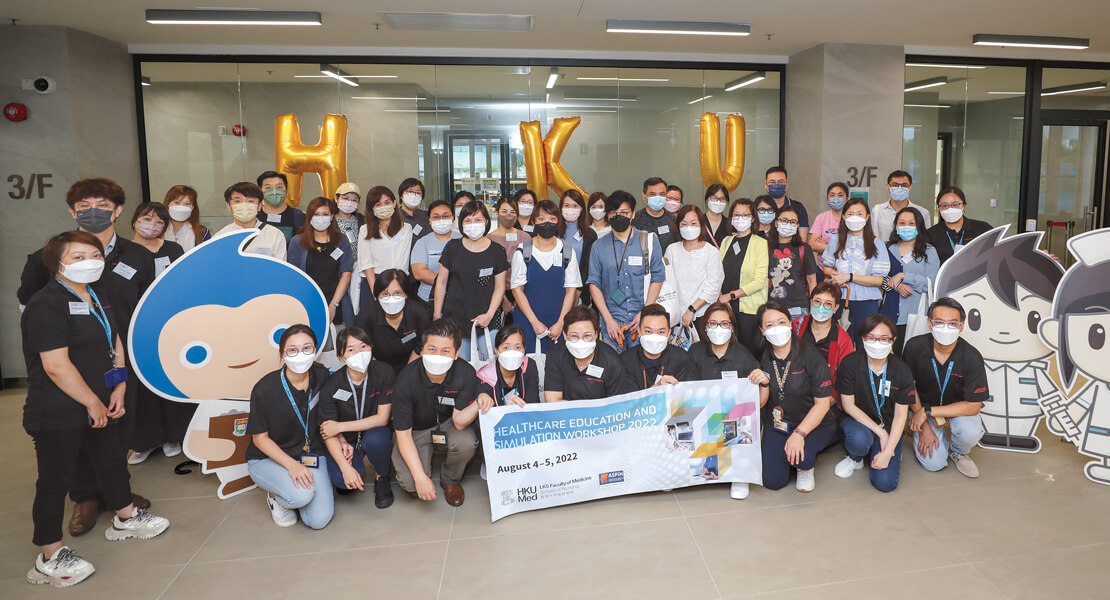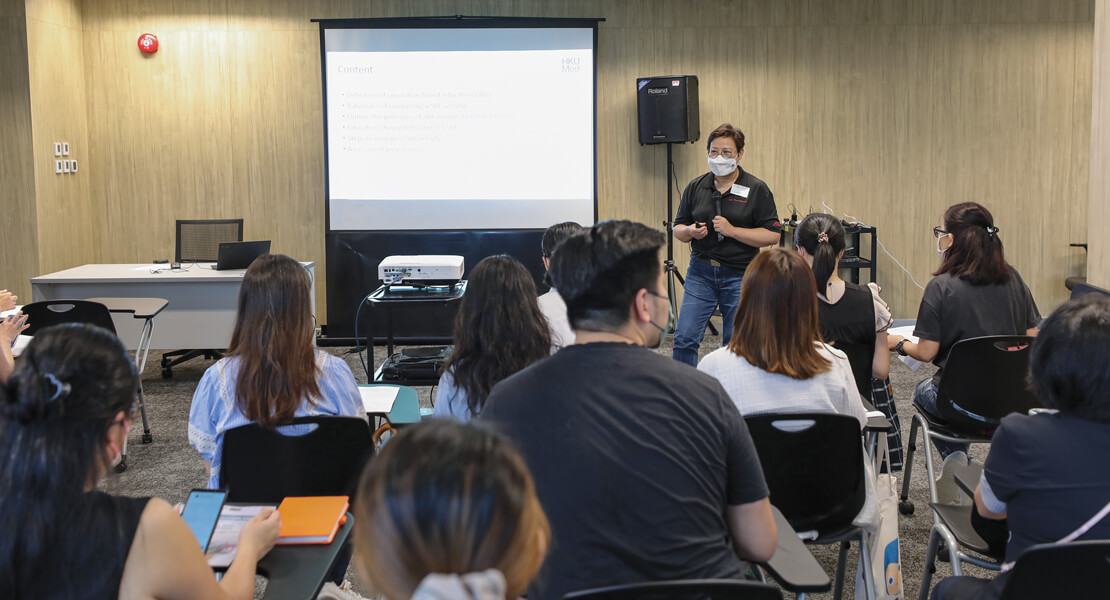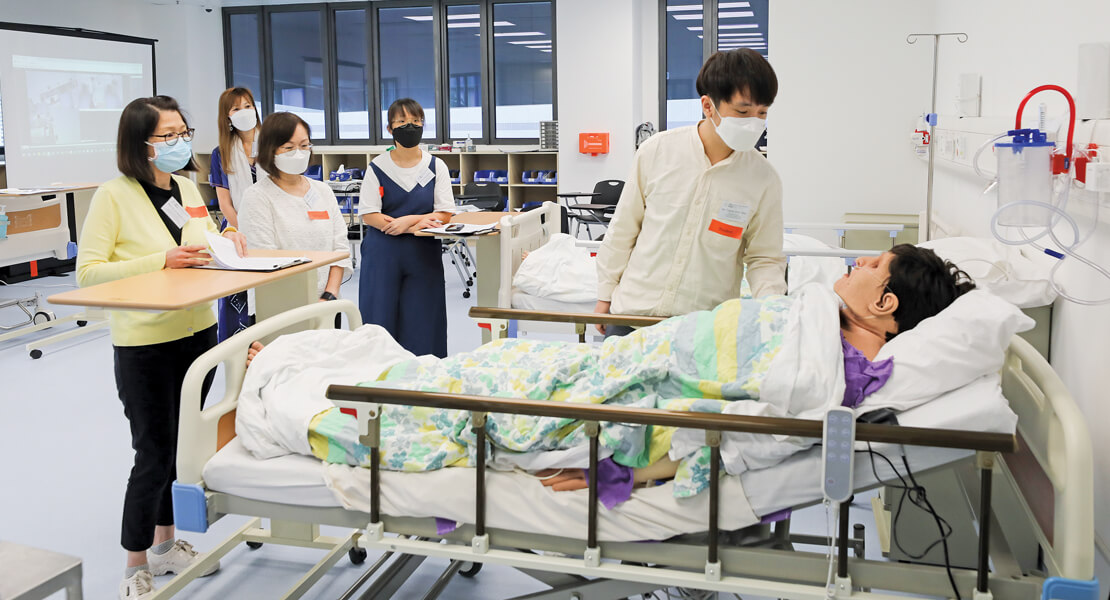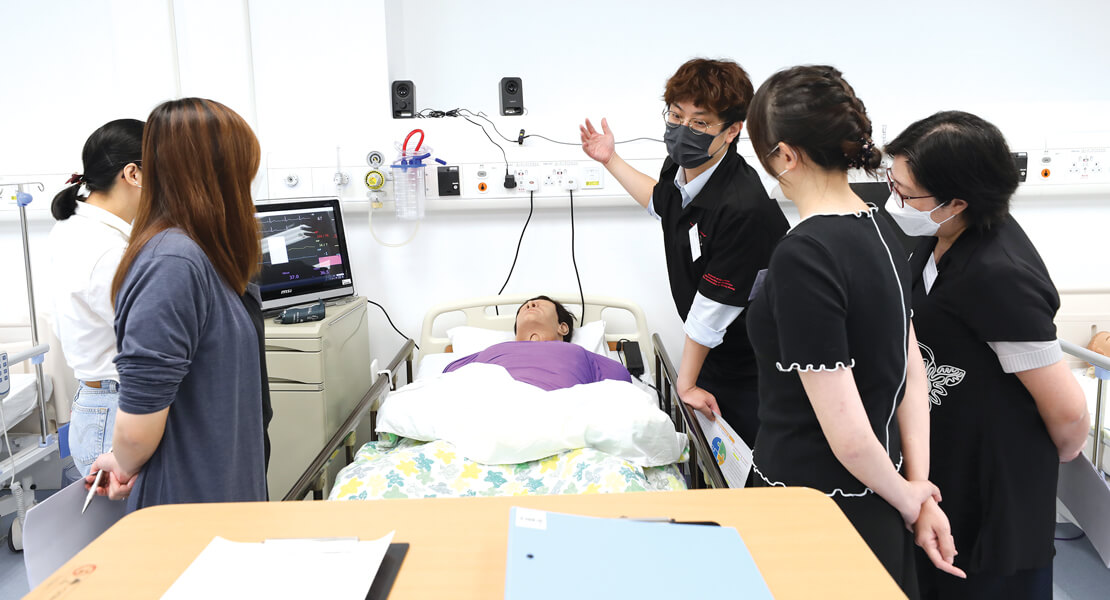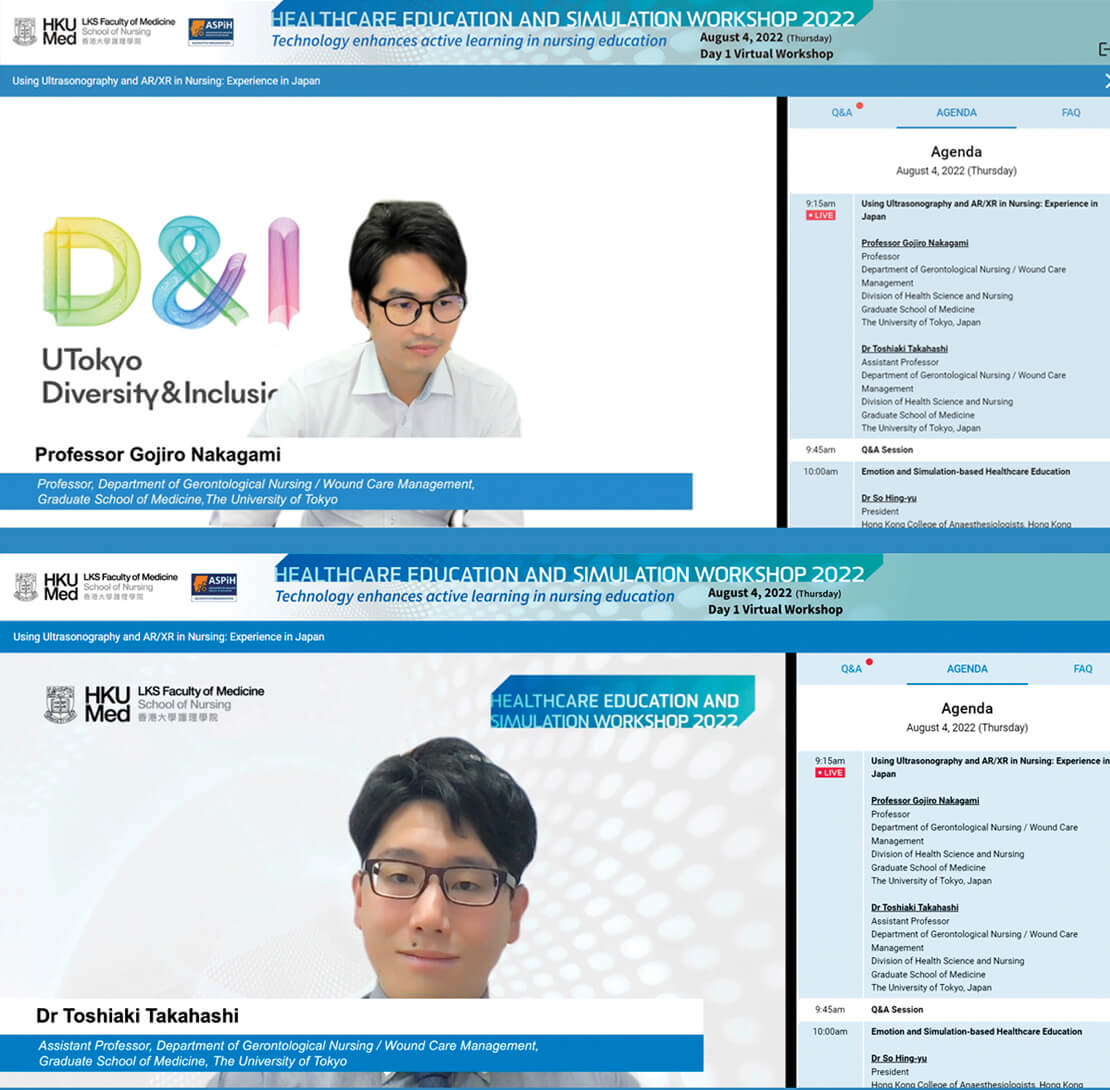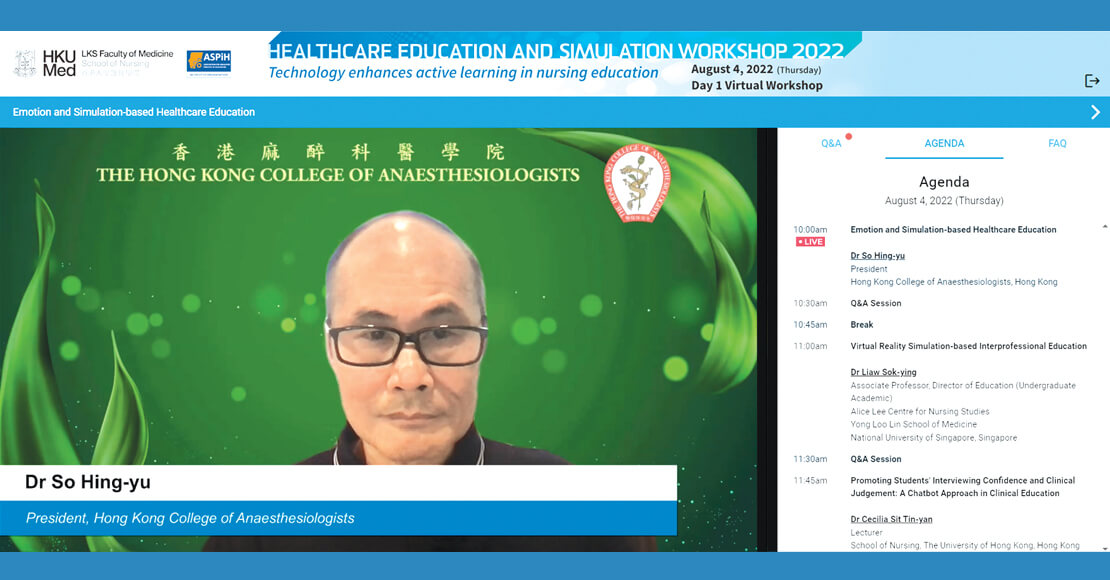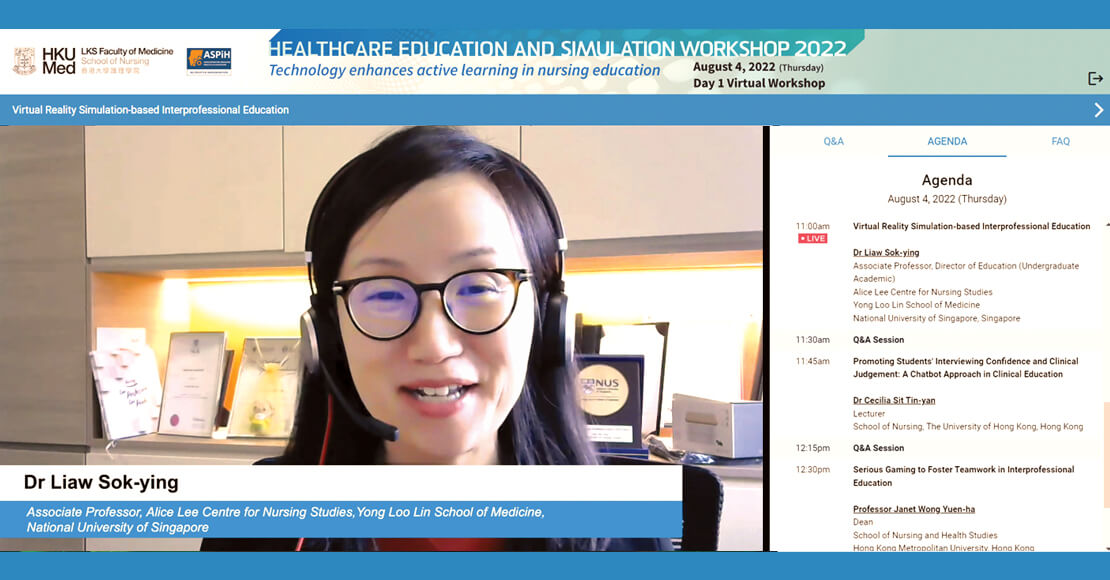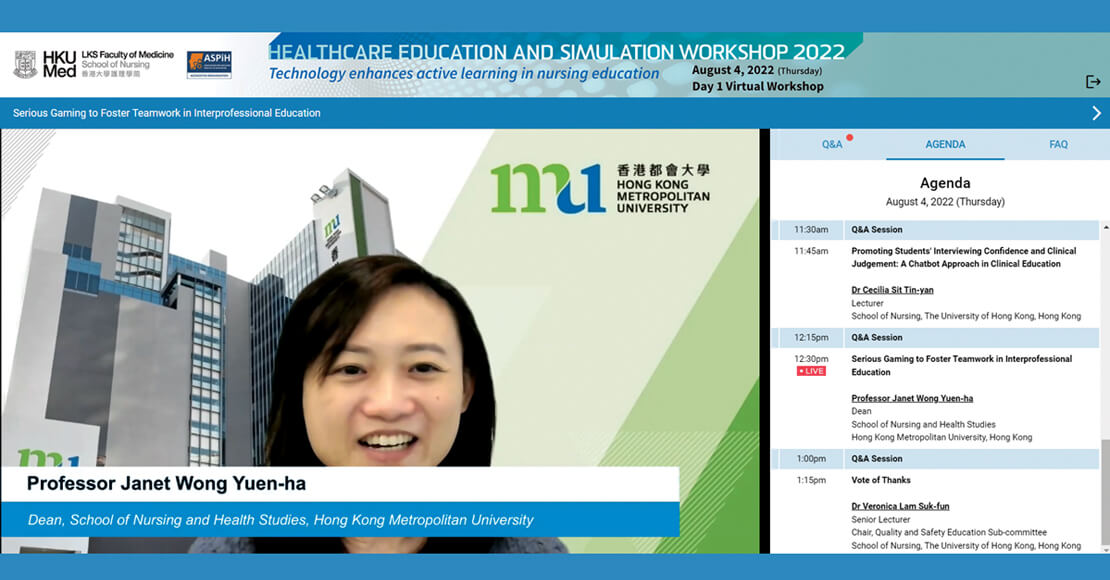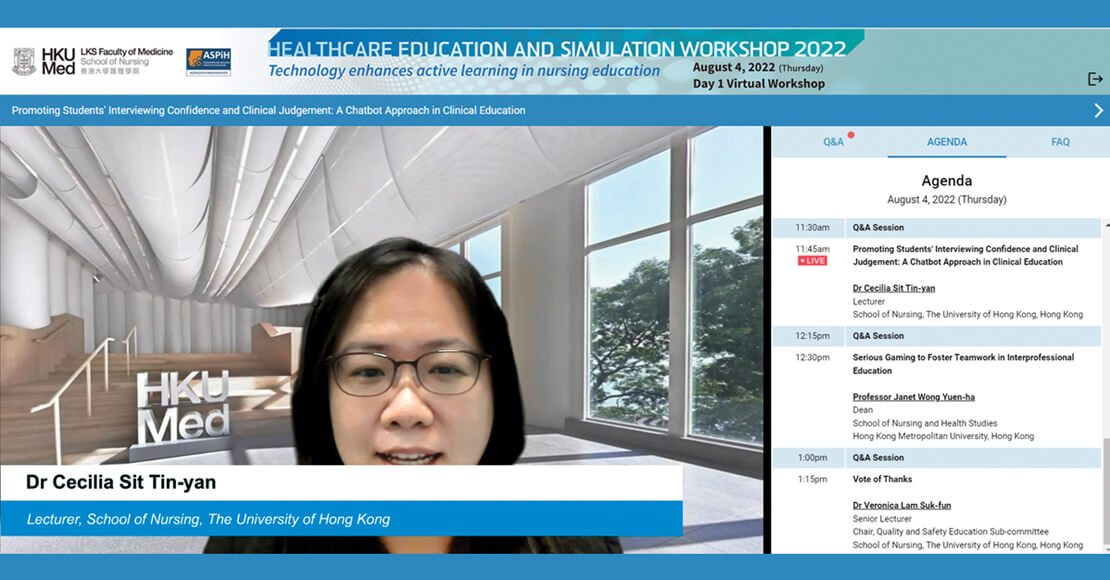Healthcare Education and Simulation Workshop 2022
The virtual Healthcare Education and Simulation Workshop organised by the School's Quality and Safety Education Subcommittee opened on August 4, 2022 with nearly 300 participants from 14 countries and regions. The theme of this year’s event was “Technology enhances active learning in nursing education”. Professor Chia-Chin Lin, Head of School, kicked off the virtual event with welcoming remarks and Dr Veronica Lam Suk-fun, Chair of the Quality & Safety Education Subcommittee, wrapped up the event with take-home messages and a vote of thanks. Distinguished speakers shared their expertise in using technology to facilitate students’ active learning, with Dr John Fung Tai-chun as the moderator. The speaker line-up included:
Topic: Using Ultrasonography and AR/XR in Nursing: Experience in Japan
Professor Gojiro Nakagami and Dr Toshiaki Takahashi, Professor and Assistant Professor, Department of Gerontological Nursing / Wound Care Management, Division of Health Science and Nursing, Graduate School of Medicine, The University of Tokyo
Topic: Emotion and Simulation-based Healthcare Education
Dr So Hing-yu, President, Hong Kong College of Anaesthesiologists
Topic: Virtual Reality Simulation-based Interprofessional Education
Dr Liaw Sok-ying, Associate Professor, Director of Education (Undergraduate Academic), Alice Lee Centre for Nursing Studies, Yong Loo Lin School of Medicine, National University of Singapore
Topic: Serious Gaming to Foster Teamwork in Interprofessional Education
Professor Janet Wong Yuen-ha, Dean and Professor, School of Nursing and Health Studies, Hong Kong Metropolitan University
Topic: Promoting Students' Interviewing Confidence and Clinical Judgement: A Chatbot Approach in Clinical Education
Dr Cecilia Sit Tin-yan, Senior Lecturer, School of Nursing, The University of Hong Kong
The main event was followed by a face-to-face Practical Simulation Workshop held on August 5. Dr Lam delivered a talk on “Simulation-based Education and Principles”, after which participants had hands-on practice in developing and conducting simulation-based scenarios, as well as a debriefing. The participants came from various nursing institutes and local clinical settings and they were able to exchange ideas on improving simulation-based learning to facilitate nursing students’ learning experiences.
Back
